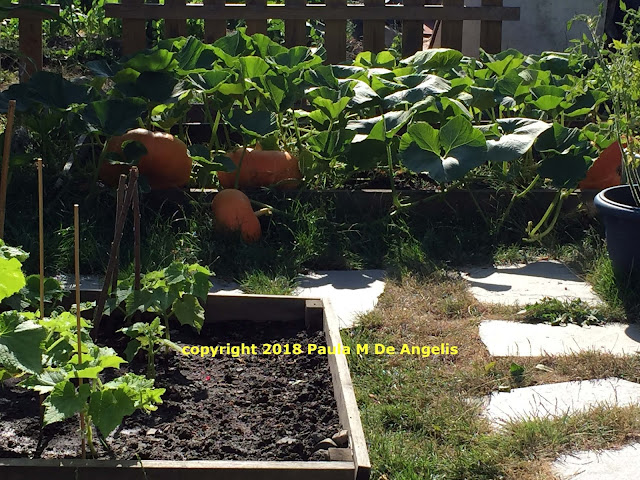I want change in the Church, and I want it now. I want
clarity, openness, honesty, and ethical behavior. I want an end to a
patriarchal, male-only culture that thrives on power, prestige, secrecy, and on
keeping women out. The criminal pedophile priests were allowed to do what they
wanted to do, unimpeded by the law. Had they not been priests and been
discovered, they would have ended up in jail. But not in the Church; pedophile
priests were merely moved to other dioceses in other states, so they could
start the pattern of abuse all over again. Their abusive and criminal behavior
was played down by bishops and Church leaders, lied about, and covered up. The sheer arrogance, the 'we are above the law' attitude, is mind-boggling. You
need only read the above article to get the full picture. Just the fact that
the Church is paying out huge sums of money to the victims of these crimes, is
witness enough to the magnitude of the crimes. But how many lives did these
priests destroy? How many? Even one life is too much. Parents trusted priests,
children likewise. Parents even encouraged their sons to become priests--that
is how revered the Church was in some families. The Church could do no wrong,
and of course, when that attitude becomes prevalent, it is only a matter of
time before the opposite is a matter of fact.
I want priests to be able to marry, I want the vow of
celibacy to be voluntary, I want women to be able to become priests, and I want
pedophile priests to be prosecuted as the criminals they are. I don’t
want to listen to more promises, more speeches, more 'all talk and no action'. If
the Church won’t institute some of these changes, I am going to stop supporting
it financially, and I encourage others to do the same.
I am so disappointed in my Church. I grieve for the parents,
children, lay people, nuns, and other priests who bought into the lies sold
them by an arrogant Church. While the faithful were trying to abide by the strict
and unforgiving sexual codes set down by the Church (no sex before marriage, no
birth control, etc.), some priests were doing anything other than abiding by
moral and legal sexual codes. They were instead criminally abusing children and
scarring them for life. It is a betrayal so huge that it boggles my mind. I can
never forgive these men. I keep my faith, and honor my faith, because my faith
is in God and Christ, not men. I am on the fence at present about how I want to
punish the Church, because it is in need of punishment. It has confessed to its
crimes, yes, and now it needs absolution. In my book, that means that the
pedophile priests go directly to jail. The leaders who covered up their crimes
can join them there. It means paying out until the coffers are empty. It means
zero tolerance for criminals and criminal behavior. It means returning to a
simpler Church, without the layers upon layers of bureaucracy and career power
trips—bishops, archbishops, etc. It means living simply, and it could start in
the Vatican, which is in possession of treasure after treasure. Open the
coffers, feed the poor, shelter the homeless, and take care of the sick. God
knows there are millions of them on the earth. For example, help the Venezuelans,
whose country is falling apart economically, resulting in their being unable to
buy food and support their families. That is far more important to me than
preaching to married couples that they should not use any form of birth
control. Christ would have worried about feeding the poor and homeless. Do what
Christ would have done, and would have you do. I have no stomach anymore for
supporting the lifestyles of priests who drive new cars, take fancy vacations, live
well, and eat well. That is not living the vow of poverty that they took. I
understand that priests too need shelter and food, but they would do well to
take a look around and see how their parishioners live, and adjust their needs
accordingly. But it would be a moot point if they could marry and live among us
ordinary souls. Then they would know what it was like to earn a living, afford
a place to live, buy food, raise children, and take care of aging parents. They
would know what it is like not to be able to afford a third or fourth child.
They might learn compassion and empathy when they actually had to face some of
these problems themselves.
I close by including a link to an article, also in The New
York Times, which was a response by the Vatican to the recent grand jury
findings https://www.nytimes.com/2018/08/16/us/catholic-church-abuse-vatican-statement.html).
I pray that this is the beginning of major reforms in the Church. It is the
only way it can survive. The faith of its parishioners will survive, but as my
father used to say, the Church is made up of men who are human. They will fail,
themselves and us, in ways that Christ will not fail us. Our faith should be
in Christ. We cannot place our faith in men and institutions; they betray us
without compunction.








































